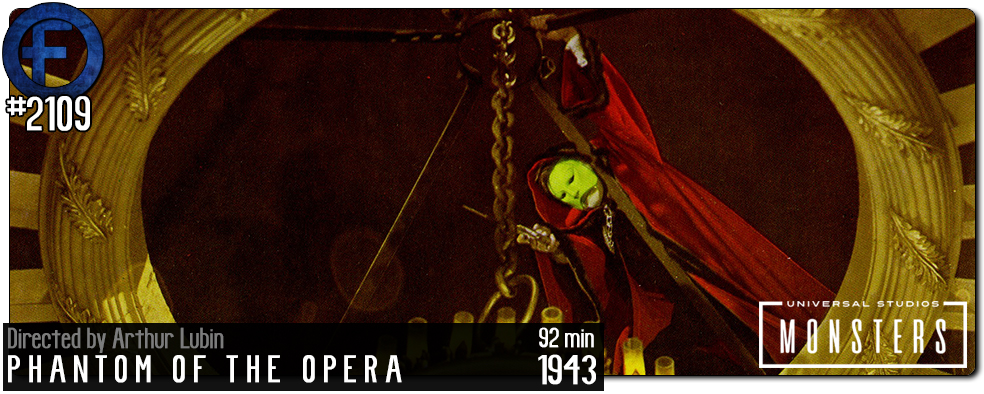Movie Review – Phantom of The Opera (1943)
Principal Cast : Nelson Eddy, Susanna Foster, Claude Rains, Edga Barrier, Jane Farrar, J Edward Bromberg, Fritz Feld, Frank Puglia, Fritz Lieber, Steven Garay, Miles Mander, Hans Herbert, Hume Cronyn.
Synopsis: An acid-scarred composer rises from the Paris sewers to boost his favourite opera understudy’s career.
********
The second major feature film adaptation of Gaston Leroux’ popular novel, again from Universal Pictures, 1943’s Phantom of The Opera is a weird kind of horror movie in the studio’s canon largely because its tone leans far heavier into that of a musical. Invisible Man star Claude Rains dons the eponymous mask and cape as he skulks about the Paris Opera House, lurking in the shadows in this unsatisfying film attempt; despite terrific production design and stunning technicolour photography, Rains and his co-stars struggle against the unevenly focused film – is it a comedy, a musical, a horror film? – resulting in a movie experience far removed from more popular efforts through the years.
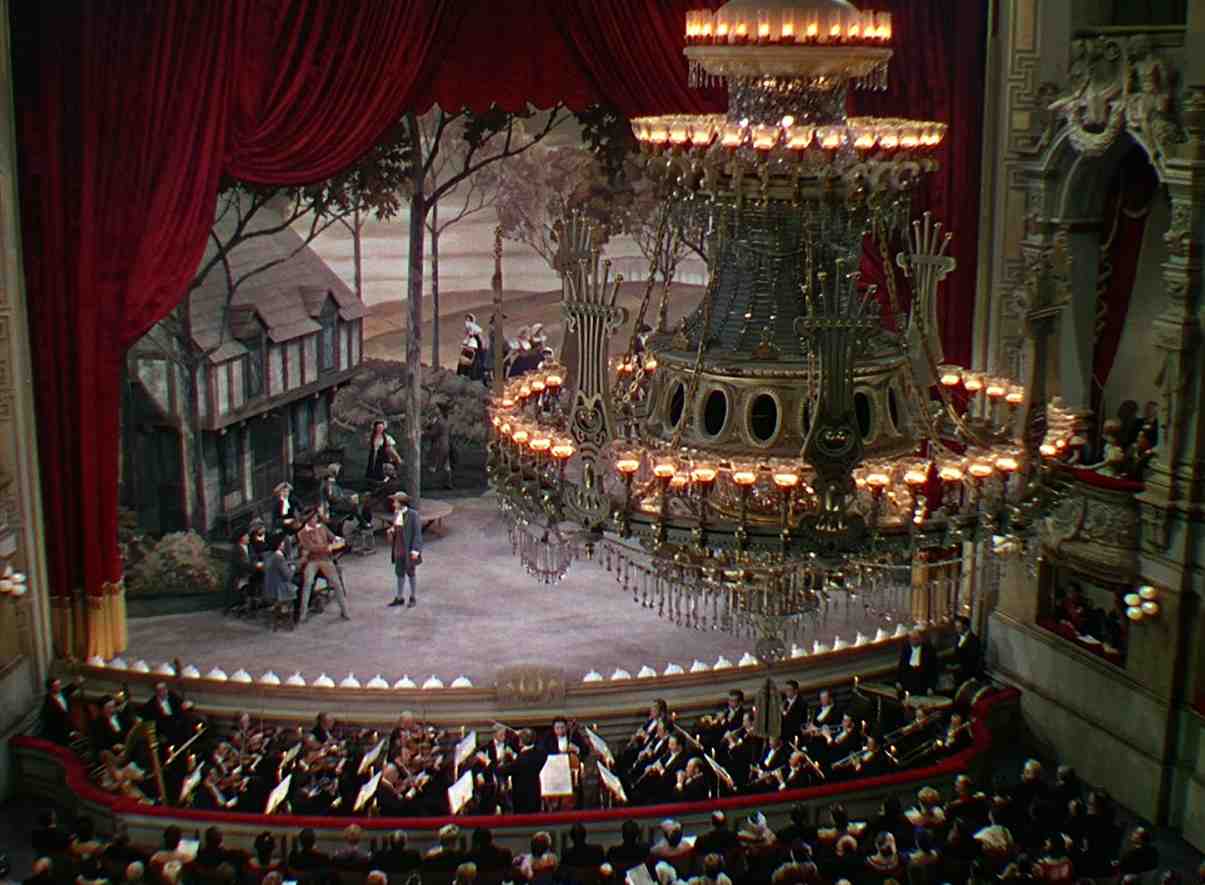
Parisian Opera violinist Enrique Claudin (Rains) finds himself redundant after revealing to the conductor that he is suffering a degenerative ailment in the fingers of one hand. Having secretly funded the singing training for beautiful young soprano Christine (Susanna Foster), Claudine has no money left to pay rent, so he attempts to sell a concerto to music publisher Pleyel (Miles Mander), only to mistakenly believe the man has stolen his composition – Claudine kills Pleyel and takes up refuge in the sprawling labyrinth of the Opera Hall’s catacombs and corridors, earning the moniker of “the phantom”. Meanwhile, Christine, who is romantically pursued by both handsome baritone Anatole (Nelson Eddy) and Dubert (Edgar Barrier), a local policeman, continues to sing as the understudy to local prima donna Biancarolli (Jane Farrar). However, when Claudin attempts to have the star of the opera removed to promote Christine’s singing skills, the police set a trap for the mysterious phantom to capture him, but not before one final confrontation threatens to send the opera into a deadly nightmare.
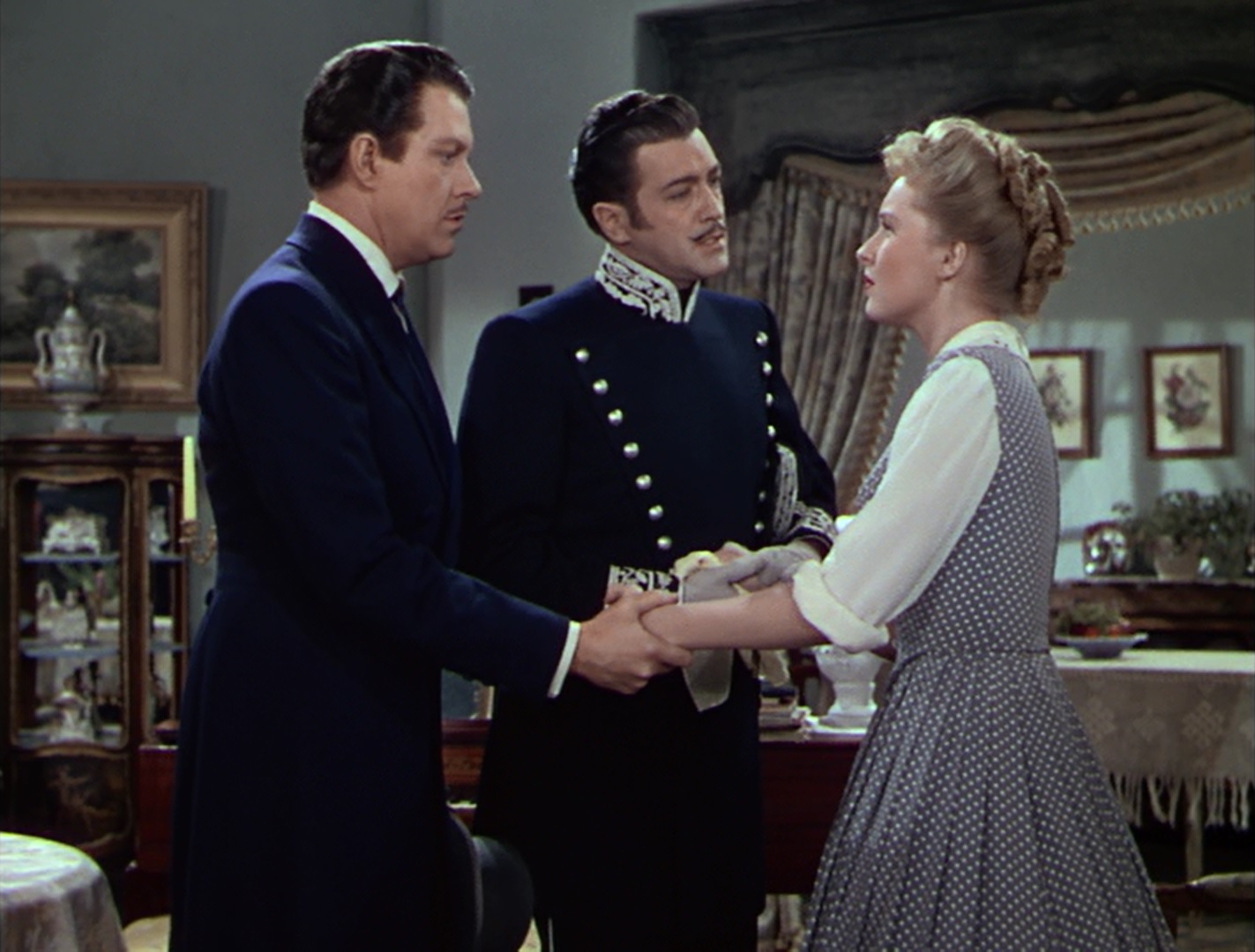
It may come as something of a surprise to learn that for a film about a disfigured creep lurking about an opera house, there’s an awful lot of opera in this one. Unfortunately, Phantom of The Opera has a real problem balancing the pacing of the horror elements within it with the delightfully arty operatic productions depicted throughout the narrative. It opens strong, with a lengthy operatic set-piece that introduces us to all the major players and their respective relationships with each other. The music and singing performances are all quite excellent, if a touch overbearing for my tastes, but director Arthur Lubin – who came onto the production following the departure of several high profile directors before him quite or were fired – makes the most of the sprawling set (the same used for the Lon Chaney-led 1925 film version) and the remarkable cinematography (credited to W Howard Greene and Hal Mohr) to give us a real sense of time and place in Paris of the early 20th Century. But it teeters after that, inexplicably spending a great deal of time with Nelson Eddy, Susanna Foster and Edgar Barrier’s romantic tryptic and seemingly placing Claude Rains’ tragic Enrique Claudin almost into the plot as an afterthought. Weird how the star of the movie isn’t even the star of his own movie… Part of the story’s famous sense of romance is the love the Phantom has for Christine, and while it’s indicated in dialogue here you never – not a single time – ever feel that Claudin has an unrequited passion for the girl.
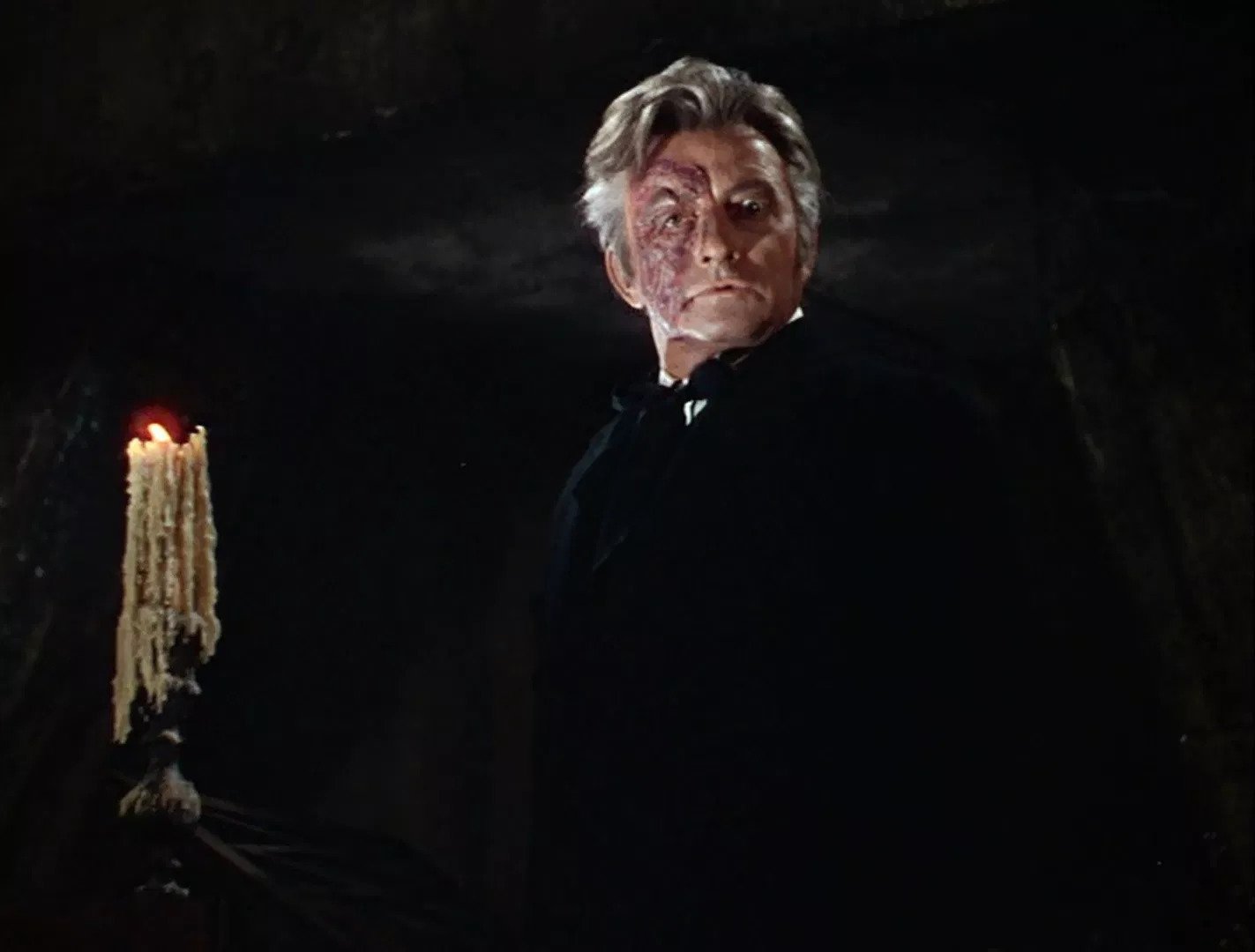
Troublingly, the screenplay by Samuel Hoffenstein (The Wizard of Oz) and Eric Taylor (The Spider Woman Strikes Back) seems intent on turning this film into a musical comedy of sorts, lightweight as that is. For a fair portion of the opening half, and even a few moments in the second, there’s a gentle chuckle to be had at the dynamic byplay between Anatole and Dubert, as they vie for the attention of sweet Christine. It’s played almost as an amiable farce here and there, which I felt really undercut the sinister undertones of Rains’ eponymous “phantom” as he tries to interceded on Christine’s career’s behalf. The murderous intent of Claudin is present in some crisp, alarming moments of actual tension but lack the presence to remain forward in the consciousness as the remainder of the film plays out, and Rains is a far better actor that the writing and screen-time give him to avail us of his talent. The film’s climactic “chandelier” sequence, in which Claudin’s masked visage is hidden amidst the entire cast mimicking a similar look for the sake of his entrapment, before he sends the opera house’s enormous lighting ornament crashing to the auditorium floor in a shriek of shattered glass, mounts its tension of pursuit well although offsets some of the growing dread with a few momentary pratfalls and sight-gags. Why? I’m unsure why the producers, writers, or even director Lubin himself would think that undercutting the menace in your movie monster’s appearances with shallow wit makes for a good choice.
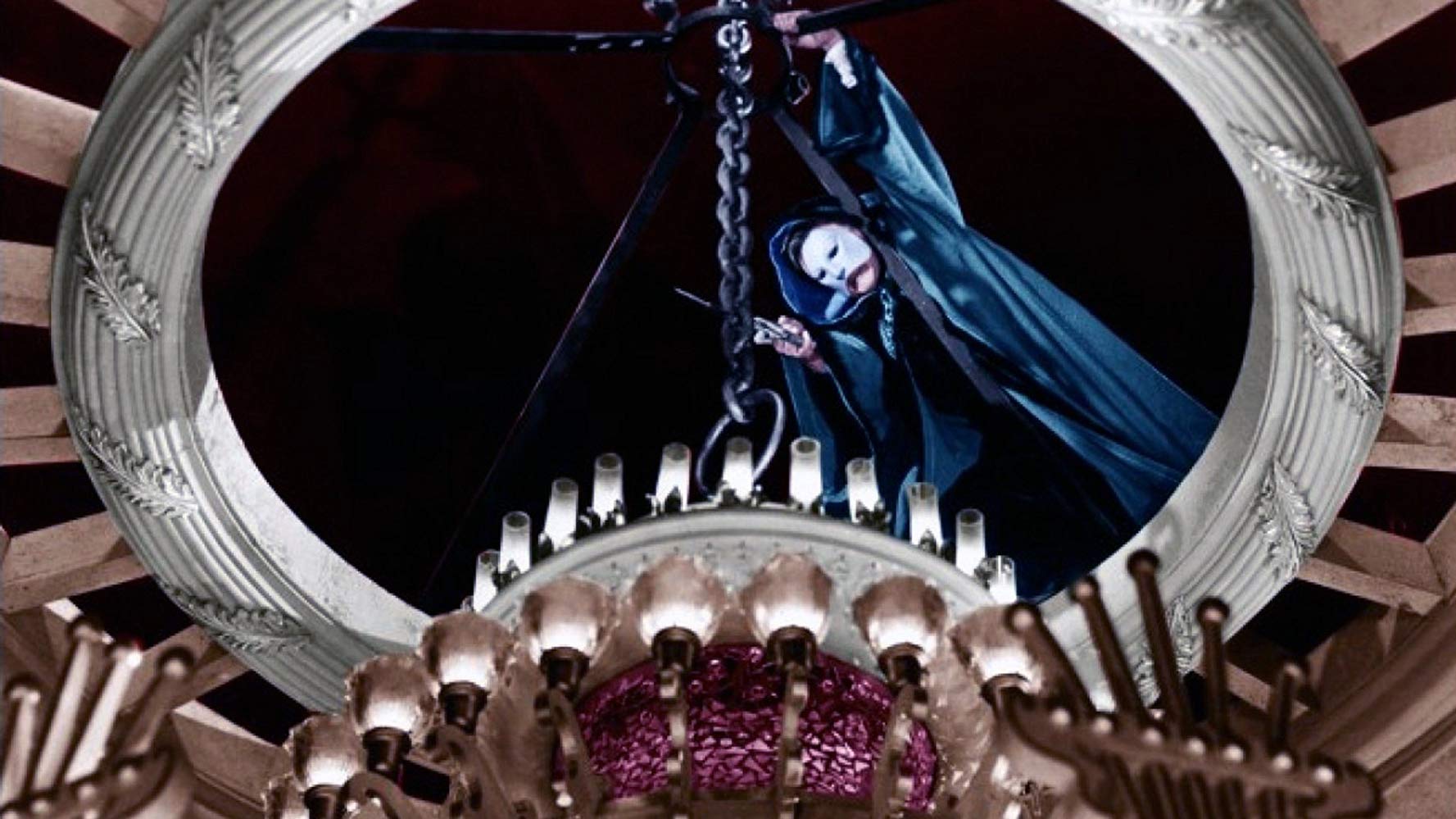
In terms of pure performances, I think Rains’ Claudin is a sad, forlorn, tragic creature, and while I think it’s a shame to keep the actor’s face hidden for the majority of the movie, it serves a purpose having such a quality performer to hand to really generate some tension in the movie. Neither Nelson Eddy or Susanna Foster provide adequate backstopping for the horror inadvertently unleashed through sheer circumstance, with their characters quite bland and indifferent, despite their singling talents. Edgar Barrier makes a great sweeping hero as Dubert, the erstwhile French policeman who becomes the primary focus against Claudin’s machinations, although his repartee with Eddy as they fight for Christine’s affections is quite delightful. Jane Farrar is cruelly magnificent as the arrogant Biancaroli, Fritz Feld and Frank Puglia are competent as the Opera’s managerial staff, and a brief early appearance by Hume Cronyn is a fun spot. But let’s face it; you’re here to see the Phantom of the Opera, and for the most part you’ll be kept waiting, with interminable “character development” afforded to Christine, Anatole and Dubert at the expense of your title character. There’s no time given to Claudine’s manifestation as the eponymous phantom: one minute he’s fleeing from the police for murder, scalded by acid and horribly disfigured, and what seems like the very next day the opera house staff are all whispering in hushed tones about a ghostly presence lurking the halls and cavernous roofspaces. It’s all very perfunctory, and all very dry.
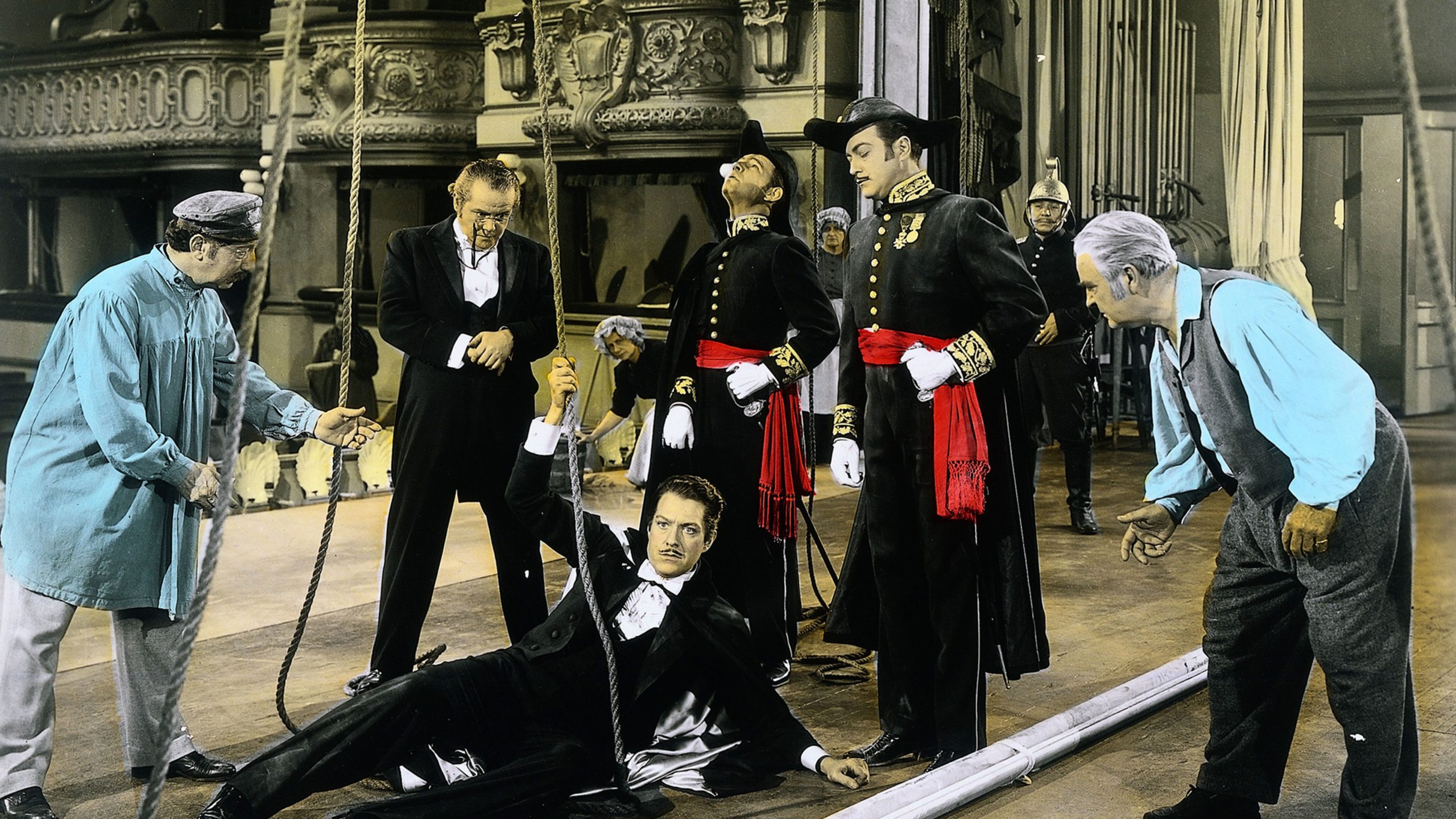
Phantom of The Opera is an uneven, tonally weird horror film in which comedy and music take center stage (if you’ll pardon the pun) instead of.. you know, the monster. The titular phantom is treated as a supporting member of his own movie, the rest of the cast have oodles of moments to shine (and they do, I guess) while the production values on show are above reproach. I’d even go so far as to suggest the visual style of Phantom is “busy”, there’s so much going on within every shot and every angle. Despite being handsomely mounted and smacking of “prestige” up the whazoo, Phantom of The Opera’s technicolour lustre lacks dramatic urgency when it matters and feels like a romantic comedy turned into a horror movie by studio decree at the last minute. Worth a look for completists and Phantom aficionados, but casual viewers can skip it.

